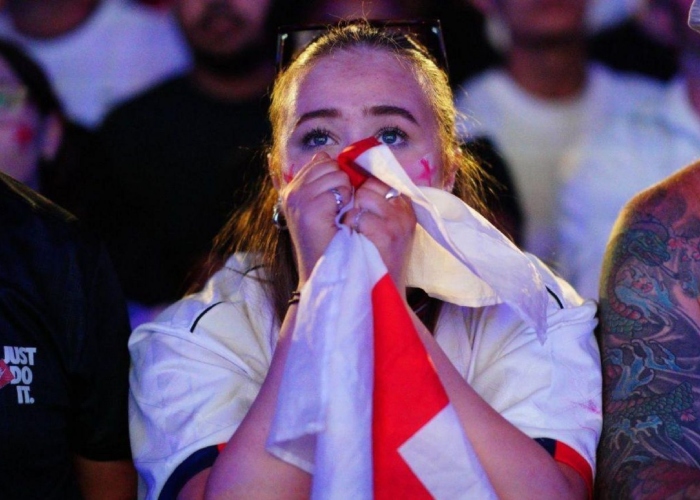The Euro 2024 final showcased a compelling showdown between England and Spain, highlighting not just the talent on the field but also the strategic discrepancies that tilted the scales in favor of the Spanish team. Despite possessing a squad laden with top-tier talent, England’s performance raised questions about the effectiveness of their tactical approach under Gareth Southgate’s stewardship. Former England defender Micah Richards provided incisive commentary during BBC One’s coverage, suggesting that England, while robust in individual skills, faltered as a cohesive unit.
Detailed Analysis of England’s Tactical Setup Micah Richards’ critique was poignant, emphasizing the gap between individual capabilities and team execution. He lauded Southgate’s previous successes, which included reaching the semifinals of a World Cup and two Euros finals. However, Richards argued that Southgate’s defensive tactics, although previously effective, might now be stifling the team’s offensive potential. According to Richards, the approach needs a tactical rethink to leverage the kind of attacking play these players regularly participate in at their respective clubs.

Spain’s Tactical Superiority in the Final In contrast to England’s conservative strategy, Spain demonstrated a masterclass in possession and progression during the final. Dominating with an average possession of 63%, Spain exemplified their traditional style characterized by meticulous ball control and strategic movements. This approach not only maintained their offensive thrust but also minimized England’s opportunities to establish their rhythm, forcing the English side into a reactive posture for the majority of the match.
Urgent Need for Tactical Evolution The call from Richards for a tactical evolution resonates with a growing sentiment among fans and pundits alike. The suggestion is not merely about being aggressive but about being strategically versatile and responsive to the flow of the game. England’s current strategy, while providing stability, often leads to predictability, reducing the team’s adaptability during high-stakes matches where dynamic play can pivot the outcome.
Player and Fan Reactions Post-Final The aftermath of the final was a mix of devastation and reflective critique among the England squad. Luke Shaw, visibly upset, highlighted the team’s strong belief in their potential and the profound disappointment in not achieving their goal. Harry Kane’s message to fans underscored the emotional and psychological toll on the team, yet reaffirmed their resolve to overcome the setbacks.
The Fans’ Stoic Acceptance Fans exiting Olympiastadion Berlin echoed a sentiment of resignation, acknowledging the superiority of the Spanish team while grappling with the disappointment of another missed opportunity. Their reactions were a blend of pride in the England team’s journey to the final and frustration at the tactical decisions that seemed to limit their competitive edge.
Media and Analyst Perspectives Media coverage and analyses post-match focused heavily on England’s tactical decisions. Emile Heskey, speaking on BBC Radio 5 Live, pointed out the passivity in England’s gameplay, suggesting a need for more proactive and aggressive strategies. The consensus among many was that while Southgate succeeded in unifying the team and engendering a spirited national camaraderie, the tactical aspect lagged, especially in adapting to the fluid dynamics of modern football.

Looking Ahead: Tactical Innovations Needed The broader discussion extends beyond mere criticism to constructive insights on how England can evolve. Incorporating flexibility in tactical formations, encouraging creative playmaking, and fostering an environment where players can express their club-level dynamism in national colors are pivotal steps. This evolution will be crucial not only for competitive success but also for keeping fan engagement and national spirit buoyant.
Conclusion The Euro 2024 final was a reflective moment for English football, underscored by Micah Richards’ candid analysis. It highlighted the essential dichotomy between having a squad of individually brilliant players and molding them into a formidable, cohesive unit. As England’s football hierarchy contemplates future strategies, the emphasis should be on tactical flexibility, encouraging offensive innovation, and aligning team strategies more closely with the players’ club-level experiences. By bridging the gap between individual talent and team strategy, England can hope to convert their potential into palpable success on the international stage.